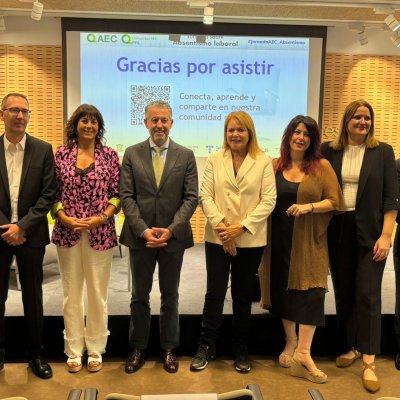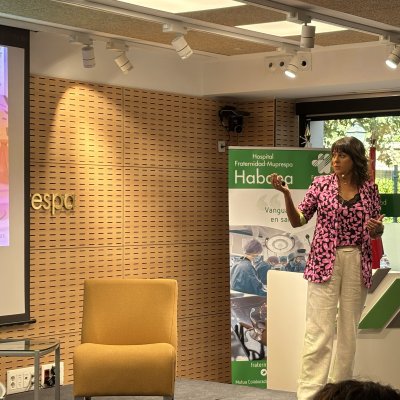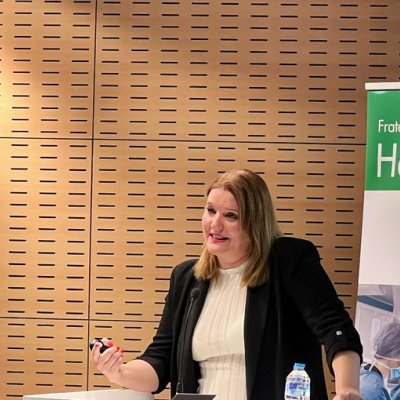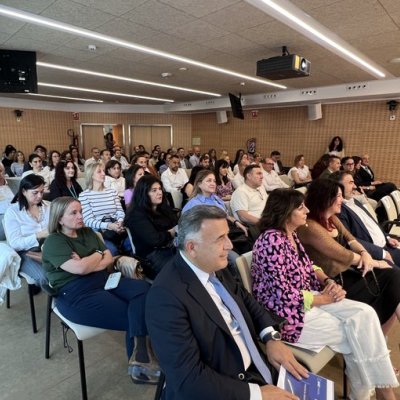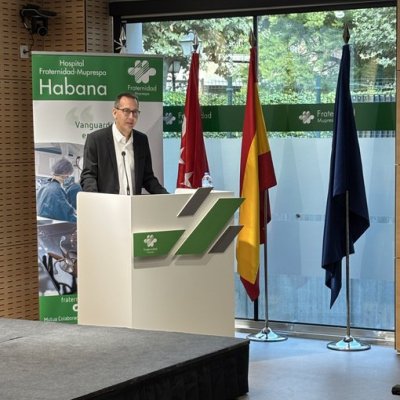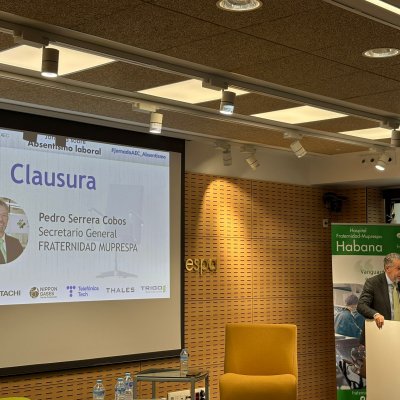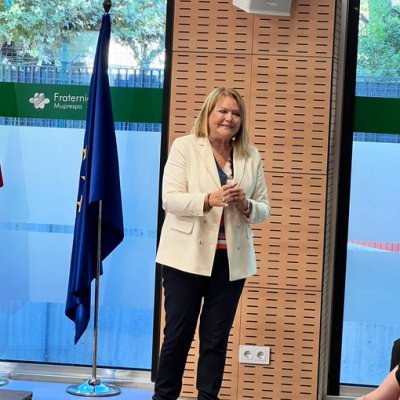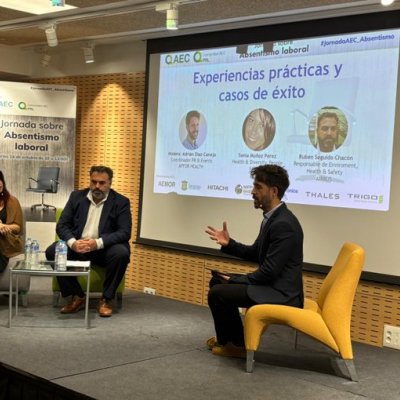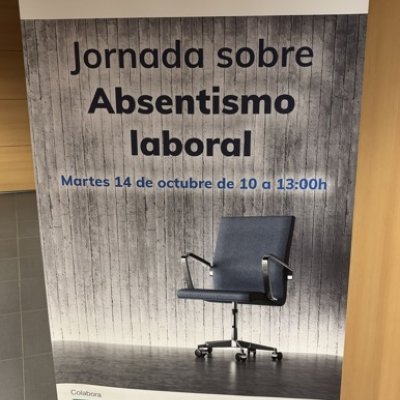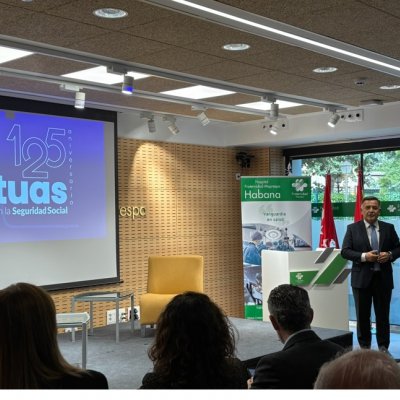![Banner and RRSS Havana Hospital Day [17688]](/sites/default/files/styles/style_1920x400/public/node/noticia/field_image_main/Banner%20y%20RRSS%20Jornada%20Hospital%20Habana%20%5B17688%5D.webp?itok=u25GeJ70)
Fraternidad-Muprespa hosts an AEC conference on work absenteeism
The Fraternidad-Muprespa Havana Hospital hosted this Tuesday, October 14, the “Work Absenteeism” conference, organized by the AEC PRL Community with the collaboration of AMAT, Health & Heal, Affor Health, Airbus and Inetum, in addition to Fraternidad-Muprespa, were the companies that took part in the event.
Javier García, president of the AEC PRL Community, urged organizations to adopt a constructive view, since absenteeism must be seen as the driving force of a model that integrates professional and personal development. "Despite the figures, it is pertinent to give a positive approach to the day. Absenteeism symbolizes a cultural change. As a company we must ask ourselves, what is in our power to do?", he stated.
The managing director of AMAT, Pedro Pablo Sanz Casado, presented data that shows the magnitude of the phenomenon. In 2024, 8.7 million processes were recorded due to common contingencies, with an economic impact that exceeded 29 billion euros in benefits.
A particularly revealing fact is that 7% of workers account for 50% of these processes, while 1.6 million people did not go to work any day of the year. The most affected age group is between 35 and 55 years old, which dispels the myth that older workers are the ones who get sick the most.
"When mental illness prevents you from working. Challenges and opportunities" was the title of the presentation by Ramona García, director of HEALTH & HEAL, cited data from the WHO and highlighted that mental disorders are responsible for 30% of non-fatal diseases and constitute the first cause of temporary disability in the world. Depression and anxiety cause 12 billion lost work days each year. “Mental illness has a part that depends on working conditions, but it also directly affects work efficiency,” he said.
Natalia Fdez. “Every absence hides a story, an unmet need,” he said.
He cited some factors that contribute to demotivation and the deterioration of workers' mental health, such as fear of retaliation, authoritarian leadership, lack of recognition or professional stagnation; and also analyzed how different generations perceive work. “Managing work from generational diversity is key to building healthy environments,” he noted.
According to Fdez.
Anabel Fernández, CEO of Affor Health, sent a clear message: “It is not enough to evolve or innovate, we need a disruption in how we have been working.” Fernández warned about the gap between the quoted hours (36.6) and the effective hours (30.8) due to absenteeism. He highlighted that among those under 35 years of age the commitment is to have more flexible work environments and proposed intercommunication between companies, mutual societies, public services and insurance companies, as a way to anticipate discomfort before it becomes chronic.
During a round table on absenteeism and workplace well-being moderated by Adrián Díaz Caneja, Sonia Muñoz (Inetum) and Rubén Seguido (Airbus) shared strategies that place people at the center of business transformation.
Muñoz highlighted social responsibility in mental health, pointing out that a toxic environment can be the origin of pathologies, and added that from Inetum, they are committed to early detection and empathetic leadership, in addition to initiatives on equality and people with disabilities.
For his part, Rubén Seguido, from Airbus, stressed that the solution to absenteeism is multifaceted and that his company has implemented everything from postural workshops to co-payment physiotherapy and technology such as exoskeletons, in addition to offering mental health, online support to employees and family members, and benefits that improve conciliation.
The day was closed by Pedro Serrera, Secretary General of Fraternidad-Muprespa, who conveyed the message that absenteeism is a reality that challenges companies, institutions and professionals. He also highlighted the need to address absenteeism from a comprehensive vision that combines prevention, physical health and emotional well-being. "Quality, health and productivity are not conflicting objectives. The healthiest companies are also the most sustainable and competitive," he stated
The closing recognized the transformative role of the AEC and celebrated the collaborative approach of the day, which brought together expert voices from AMAT, Health & Heal, Affor Health, Airbus, Inetum and Fraternidad-Muprespa. A space to reflect, share and move towards more human and resilient work environments.
